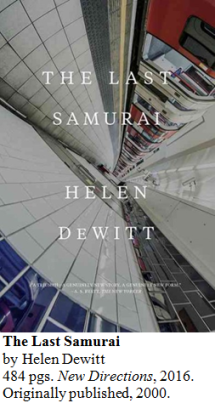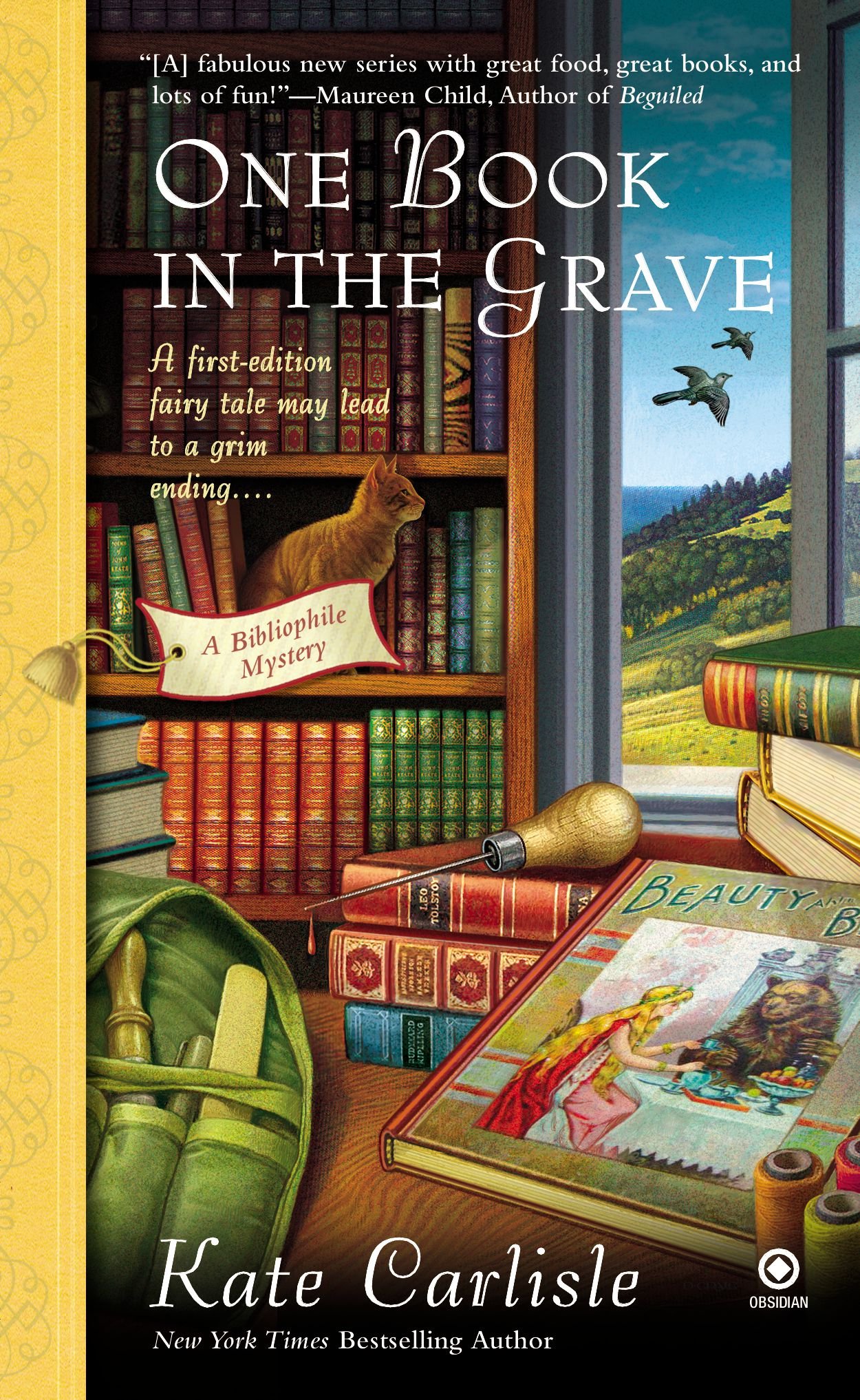 About a year ago, New Directions rereleased Helen DeWitt’s long out-of-print novel, The Last Samurai, which was accompanied by quite a bit of publicity, including this post on LitHub featuring glowing testimonials from various booksellers. But the buzz seemed to die down quickly in the months following, at least in the online spaces I haunt, so here’s my small effort to call attention once again to this remarkable book.
About a year ago, New Directions rereleased Helen DeWitt’s long out-of-print novel, The Last Samurai, which was accompanied by quite a bit of publicity, including this post on LitHub featuring glowing testimonials from various booksellers. But the buzz seemed to die down quickly in the months following, at least in the online spaces I haunt, so here’s my small effort to call attention once again to this remarkable book.
The cover of the reissue features an extreme-wide-angle, upside-down-and-tilted photo of subway cars in The Tube. It almost shouts challenging text ahead, which both increased my anticipation and made me a bit nervous, but I breathed a little easier as I flipped the pages of DeWitt’s Prologue which is immediately immersive, intelligent, and a bit snarky – it ends with a bang, promising great things ahead. I challenge anyone to read the Prologue and not be tempted to dive into the rest of the book.
At its most stripped-down, the story is about a single woman (Sibylla) who is raising and educating a genius child (Ludo) in London. She supports them by doing low-wage data entry work at home – work that is frequently interrupted to field the many questions from her precocious son. I don’t think there are many novels out there that could be considered page-turners which also, in the course of the narrative, explore the rudiments of Greek and Japanese, the educational ideas of John Stuart Mill, the artistry and deeper meanings beneath Akira Kurosawa’s Seven Samurai, or touch on such subjects as solid state physics, the principles of aerodynamics, or Schoenberg’s Theory of Harmony.
But a page-turner it is. This is one of those books I could hardly wait to get back to every time I had to leave off reading. That’s not to say, however, that it won’t rub any number of readers the wrong way. I was put off at times by Ludo’s extreme braininess, and by Sibylla’s occasional pedantry and condescension. Others, I imagine, will be skimming the lessons in Greek, Kanji, and the “distributive principle of multiplication.” Stylistically, you should be prepared for paragraphs that simply trail off, a variable use of quotation marks to indicate dialogue, and the use of all caps when Sibylla gets worked up (especially against barbarism and the aesthetic excesses of certain writers and painters). And if you respond as I did, you may well come away from this regretting the quality of your own education and feeling that you wasted your youth (though also inspired, somehow, that maybe it’s not too late to catch up).
As Ludo grows up he becomes more obsessed with discovering who his father is, and though Sibylla will not help him with this, he corners her into dropping clues and making slips which he then pursues. With the film Seven Samurai always playing in the background, it may not surprise you to learn that Ludo has narrowed the field down to seven possible candidates. Much of the impetus for Ludo’s wide-ranging study comes from the specialized interests of these seven men, as he prepares himself to potentially encounter his father as a worthy opponent in the spirit of a samurai. The last half of the book includes Ludo hunting down these individuals, and these diverse tales should certainly please readers who enjoy following a character through various adventures and storylines.
I’m not sure how actively I’ll be attempting to teach myself Greek, but you can add my voice to those who found this an ambitious, inspired, unique, and totally successful piece of writing.
Share this:




